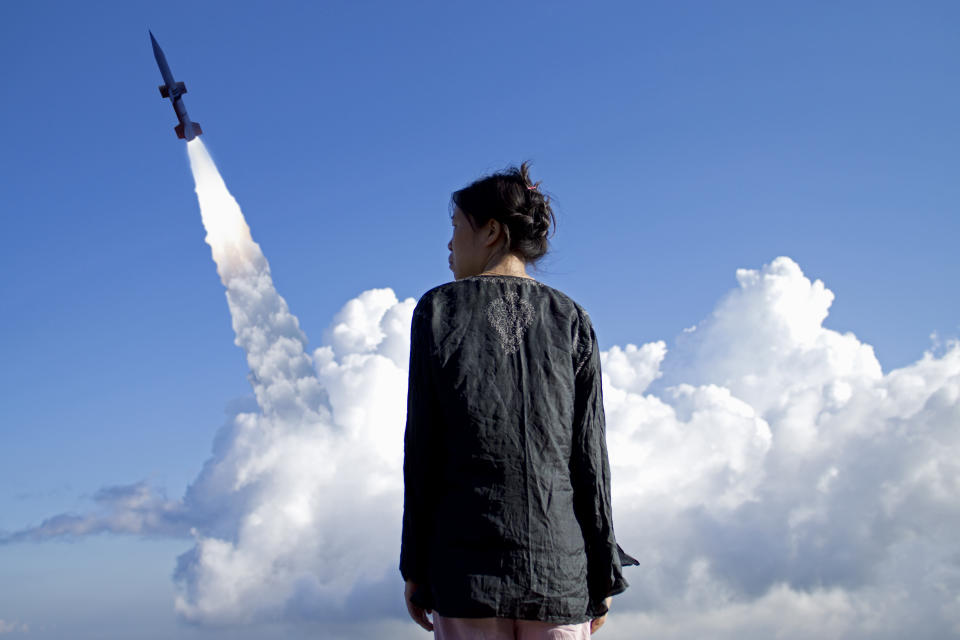Nuclear war could cause doomsday winter and global famine, scientists predict

After the bombs drop, soot will be blasted into the upper atmosphere, shrouding Earth in a dark cloud - and bringing on a terrible doomsday winter.
In the ruins, food production could become impossible, leading to a terrible global famine.
Scientists have used a huge smoke cloud from Canadian wildfires in 2017 to predict the deadly ‘nuclear winter’ which could follow even a relatively small nuclear war.
The scientists concluded that even a small nuclear exchange could cause rapid climate change and global food shortages.
The wildfires in British Columbia pumped so much smoke into the upper atmosphere in August 2017 that an enormous cloud circled most of the Northern Hemisphere.
Scientists used satellite images of the cloud’s movements to model the effects of nuclear war.
The research team calculated that the smoke cloud contained only about 0.3 million tons of soot.

A nuclear war between India and Pakistan could produce 15 million tons, while a Russo American superpower conflict could generate 150 million tons.
The dark cloud would chill the planet, disrupting food production and potentially causing a global famine.
Study co-author Professor Alan Robock, of Rutgers University in the US, said: ‘This process of injecting soot into the stratosphere and seeing it extend its lifetime by self-lofting, was previously modeled as a consequence of nuclear winter in the case of an all-out war between the United States and Russia, in which smoke from burning cities would change the global climate.
MORE FROM YAHOO
Murdered PC Andrew Harper's widow pays moving tribute to 'perfect husband'
Jihadi Jack could avoid prosecution for joining Isil as a Canadian
Labour commits to total ban on keeping monkeys as pets
‘Even a relatively small nuclear war between India and Pakistan could cause climate change unprecedented in recorded human history and global food crises.’
Prof Robock said the scientists validated their previous theories and the climate model they're using for ongoing research on nuclear war impacts by studying the wildfire.
The observed rapid rise of the smoke plume, its spread and photochemical reactions in the ozone layer provide new insights into the potential global climate impacts of nuclear war, according to the findings published in the journal Science.
Prof Robock said the next steps are to use refined nuclear war scenarios to determine the potential impact on the climate and food production on land and in the ocean, along with the potential for global famine.
He added that what the scientists learned from the wildfire modeling will make their new work more accurate and credible.


